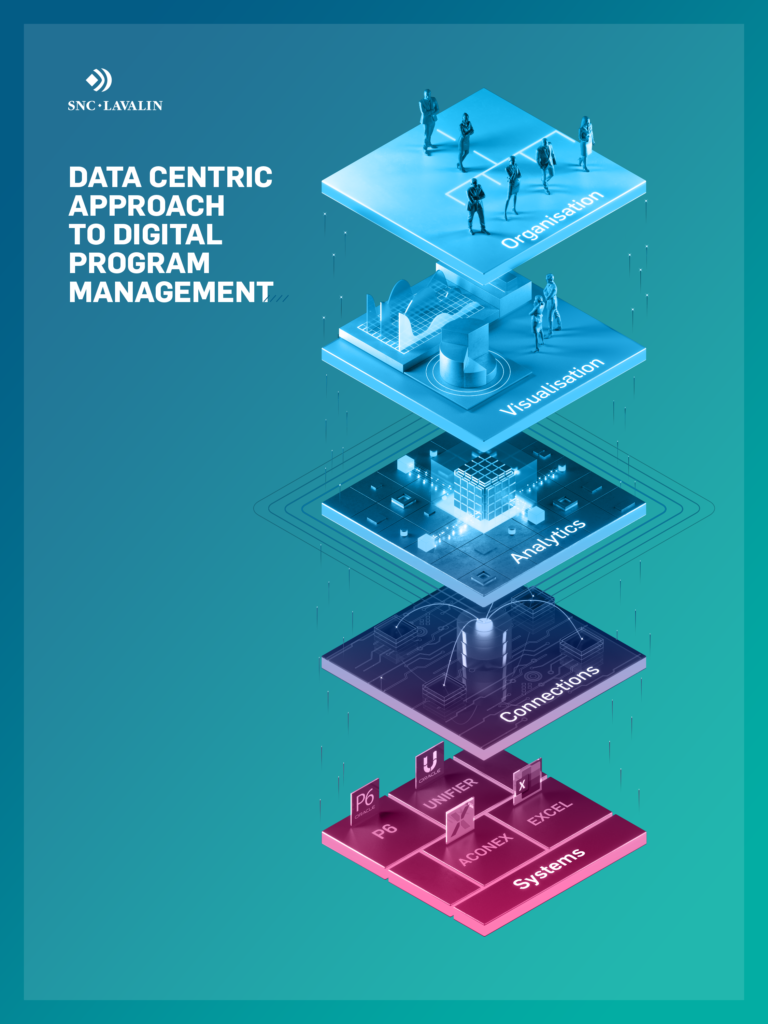To get the best from data – and use it to make meaningful decisions – it must be clean, well organised and accessible
By Oliver Kallenborn, Regional Controls & Assurance Director, Faithful+Gould and Alejandro Lopez, Digital Delivery Director, Atkins – members of the SNC-Lavalin Group

We’ve all heard the adage “data is the new oil” – and it’s true data is an incredibly powerful tool for any Programme Management Office (PMO).
When leveraged effectively, data can give teams greater visibility over their projects, minimise human error, boost productivity, and empower people to make better-informed decisions, leading to projects that are delivered on time and on budget.

However, to run with the aforementioned analogy, many PMOs plunge headfirst into drilling their virtually endless well of data, with little thought to what exactly they are trying to extract and, more importantly, what they will do with all this data once they have it.
Ultimately, becoming “data-driven” isn’t about the tools or software packages you use – that’s just one element. It’s about designing a wider process that empowers you to extract, aggregate, and analyse the data you need quickly and effectively. In order to reap the rewards of data-centric, digital programme management, organisations need to embrace a completely new way of working together.
- Employees spend 25% of their time looking for information
- Data scientists spend 60% of their time cleaning and organising data
Data sources in construction
In the construction industry, PMOs often have to use different tools and software programmes with each new project they work on. On top of that, they must contend with multiple data sources – schedule data, cost data, GIS data, etc. – across different contracts, projects and programmes. It’s not unheard of to end up with a contract that has six different end dates – and it’s understandable how mistakes like that can happen.
That’s why having one reliable source of truth straight off the bat is essential. Without clean, organised, and accessible data, you cannot glean useful, actionable insights.
At SNC-Lavalin, we have developed a layered, digital strategy to solve this challenge, breaking down and tackling each issue individually.

Data Input
The starting point; take a technology-agnostic approach. Each client will have different needs and will be at different stages of their digital journey. By developing a strategy with an agnostic approach, you maintain complete flexibility to pivot.
Data Extraction
Develop a library of automated connectors to various Project Management Information System platforms so that data can be extracted into the analytics engine.
Data Integration
At the heart of our approach is an analytical engine, a complex model of structured data that enables predictive analytics and artificial intelligence to digest and aggregate into useful, usable information.
Visualisation
Tied to the data model, we have integrated PowerBi, so that projects and teams can access data seamlessly.
Making smarter decisions
Once data is centralised, organisations are in a far stronger position to process and analyse it, pulling out meaningful insights that can be acted upon. They can also now draw upon historical data to predict the future outcomes of projects or forecast trends. One of the major functions of any PMO is risk management and now, thanks to predictive analytics, it is easier to accurately identify high-risk activities, or predict how rescheduling a particular milestone will impact the outcome of a project – something that would have taken people months to pull together into a report before. At a time when clients are increasingly demanding immediacy, this efficiency is invaluable.
This approach also makes project management teams’ lives a lot easier. In the same way that smartphones have taken over many of the more menial tasks in our everyday lives – making shopping lists, setting alarms, counting calories – in minutes we can now automate processes that once took teams hours to complete. At the same time, through automation we remove the possibility of human error from these processes, ensuring greater accuracy at every step.
Embracing a mindset, and skillset, shift
Now that data is centralised, we are building machine learning models, automating tedious manual processes and making better decisions, faster, thanks to the analytics available – where does that leave the people in this system? Whenever we talk about automation, people inevitably ask: “Are robots going to steal our jobs?” – but becoming data-centric isn’t about removing humans from the equation. When ATM machines were installed, people thought bank tellers would become obsolete. We know now that isn’t the case, but the skills required for the job did change. Likewise, PMOs will demand more hybrid roles that require digital dexterity – people with technical skills, complemented by soft skills like team leadership and communication.
Of course, this shift won’t happen overnight. As organisations merge digital strategies with traditional ways of working, PMOs will need to adapt and upskill their teams to keep pace with this transformation. But embracing this change is absolutely necessary – because the alternative is to be left behind.
Plagued by costly overruns and inefficiencies, the construction industry has been slow to pick up new digital technologies until now. But PMOs are faced with an important opportunity to orchestrate change, harnessing data to make better decisions, faster, and paving the way for the rest of the industry to follow suit.
More on data use and integrity















